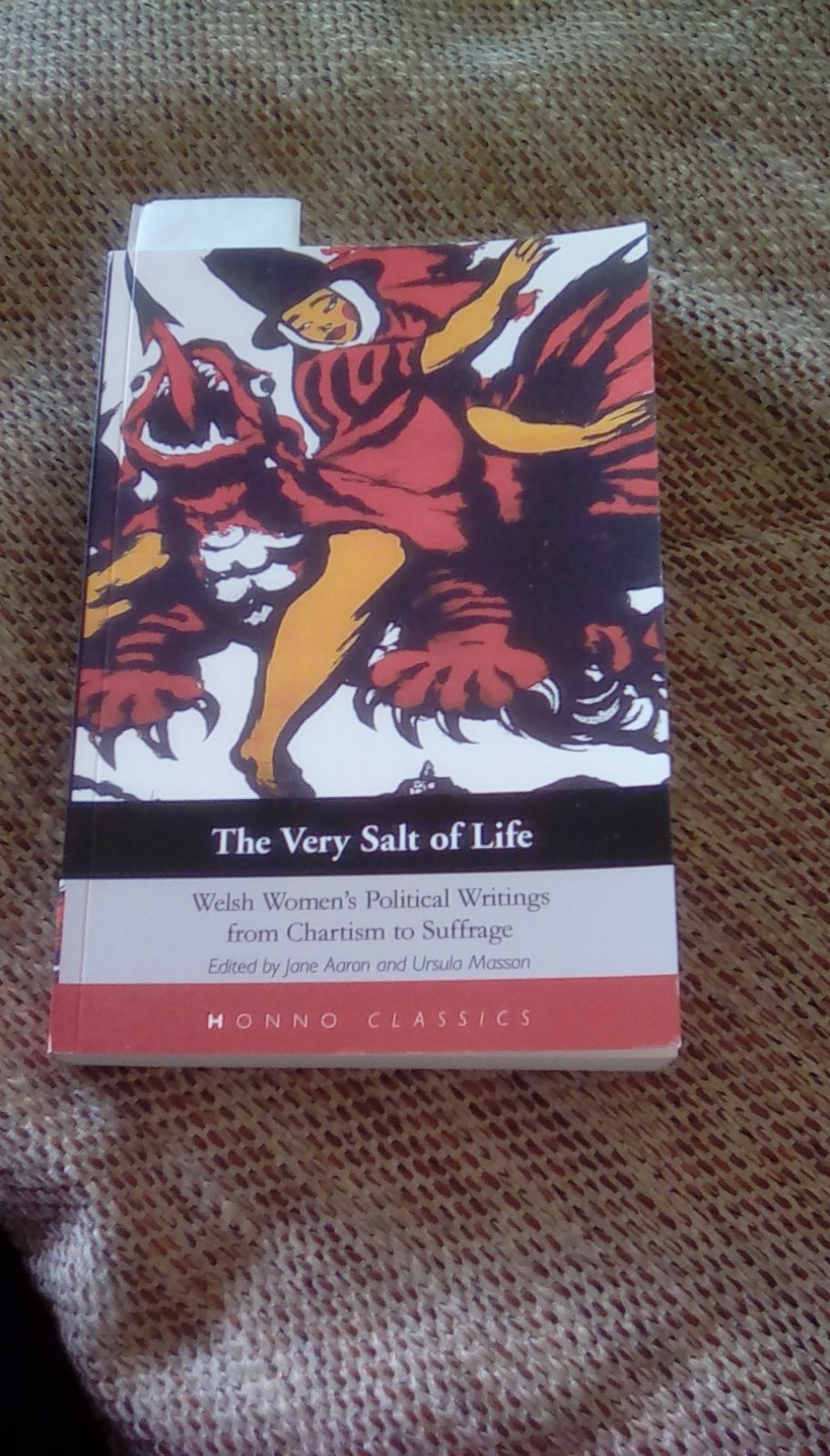Hello there. Hope you're feeling well today.
Before I chat about the book I should explain how it was purchased.
A few weeks back I was going through the spam filter of my email. Normally they are full of offers or forthcoming programmes on (insert channel here) but I hadn't gone through this in months. Much to surprise there was an email dated August from the Honno press. Where they explained what their publishing house does and offered to send me review copies of some of their publications.
Now I declined their kind offer. Because whatever the value of my opinions are the one thing I would want the readers of this blog to be assured by is that when I chat about a book it's either been bought or borrowed from a library. However I was tardy in responding to them.
And....
Honno Press specialises in books by female Welsh writers in English. Honno Classics brings back such work which has been out of print to a new audience of readers. I was conscious that whilst the choice of books I read is deliberately random aside from passing references to Dylan Thomas for a blog that also discusses things Welsh this was an omission.
So because of these two things I promised Honno that during the Christmas period I would buy one of their books. Which I did.
The book I chose was this originally published in 2007:
 |
| The Very Salt Of Life - Edited by Jane Aaron and Ursula Masson |
It's a fascinating read. Special mention should go to Jane Williams' forensic demolition on an official report in 1848 which, amongst other things labelled Welsh women sexually wanton.
Many subjects including education and the right to vote are covered here all worthwhile for the reader I assure you ...except possibly one.
I say "possibly" because this shows my ignorance more than anything else (which is why I picked it from the Honno catalogue) but in this book on Welsh women's political writings there is no mention of the I word.
Independence.
Again let me repeat that this shows my ignorance on the subject but it would be surprise me greatly that for a whole century there was no woman who put pen to paper and said that what Wales needed was to be a separate nation again.
You might say (as I explained earlier) that there were other immediate and pressing concerns. And you'd be right. But that doesn't mean an absence of an opinion on this issue. Trust me if there is one thing I know about Welsh women it's that they're not shy in expressing a view on anything!
So it's an important book. A book worth reading. Whether there is a flaw in it though is for people more knowledgeable than me to advise upon.
The Honno press website showcasing works past and present by Welsh women writers is https://www.honno.co.uk . They have a sale on currently in that site.
I know I'll be buying works from that publishing house again.
Until the next time.
Thanks so much for buying this book and the thoughtful review! So glad you enjoyed it. Interesting point about Welsh independence not being included in a direct way (although I know it is referred to obliquely in the introduction for instance). I have asked the editor, Jane Aaron, for a bit more information on the independence movement during this period. Thanks again.
ReplyDeleteHi, I have had a response from the co-editor, Jane Aaron, on this, that I hope answers your question - and gives further interesting information! Best wishes, Helena
ReplyDeleteI noticed that you mention the volume 'covers a period from the 1830s to the 1930s'. In fact (as in the title), it's 'from Chartism to Suffrage', i.e. it doesn't attempt to cover any political events after 1914. One of its extracts was indeed published in the 1930s, but that's only because it was only then that Lady Rhonda published her autobiography describing her suffragette activities.
If we had intended to go up to the 1930s we would certainly have included material on Welsh independence movements, because Plaid Cymru gets going in the 1920s. Before then, though, throughout the nineteenth century, there was only one short-lived period of Welsh independence campaigning - the Cymru Fydd movement of the 1880s-90s, led by a group of Welsh Liberal MPs calling for Home Rule for Wales. Some women did contribute to this movement, notably Gwyneth Vaughan and Mallt Williams, but both were fiction writers. The closest we've published in Honno to pre-1914 Welsh women's writing on the independence movement is probably Gwyneth Vaughan's pan-Celtic story 'The Old Song and the New' in 'A View across the Valley'. A possible next read?
The Back Cover of the book states that the anthology "covers a century of Welsh women's political writings, from the 1830s to the 1930s". Full suffrage to women occurred in 1928.
ReplyDeleteYes, thank you for the pointing that out, it definitely does need modifying in the next issue as it is confusing to the reader! Great to get more information from Jane on the issue of independence too.
ReplyDelete